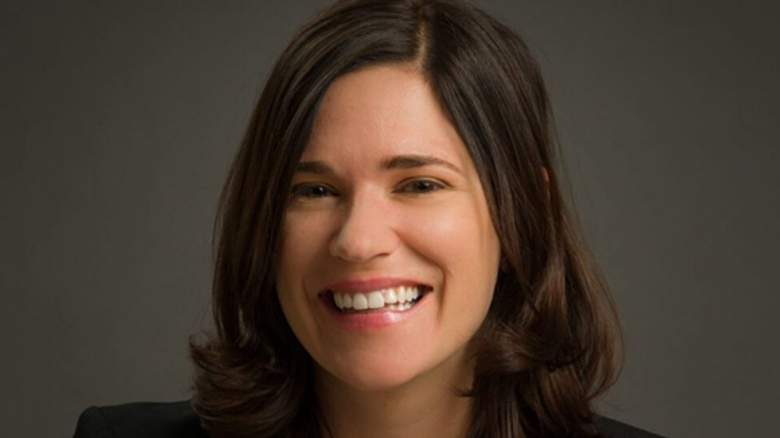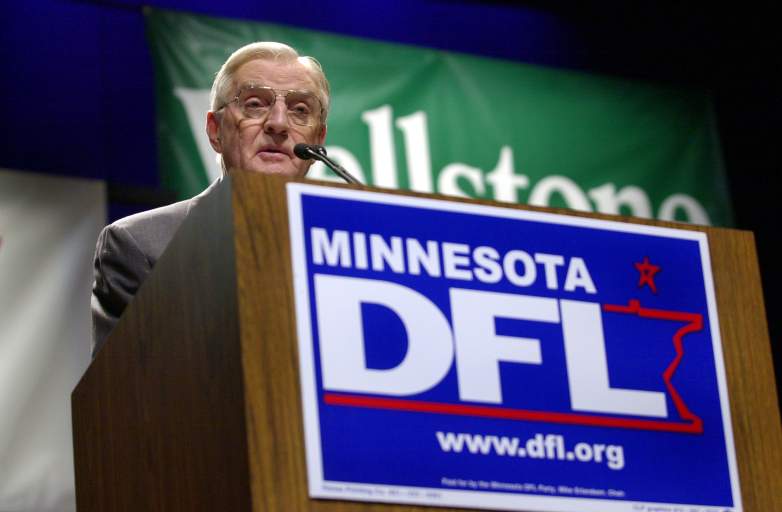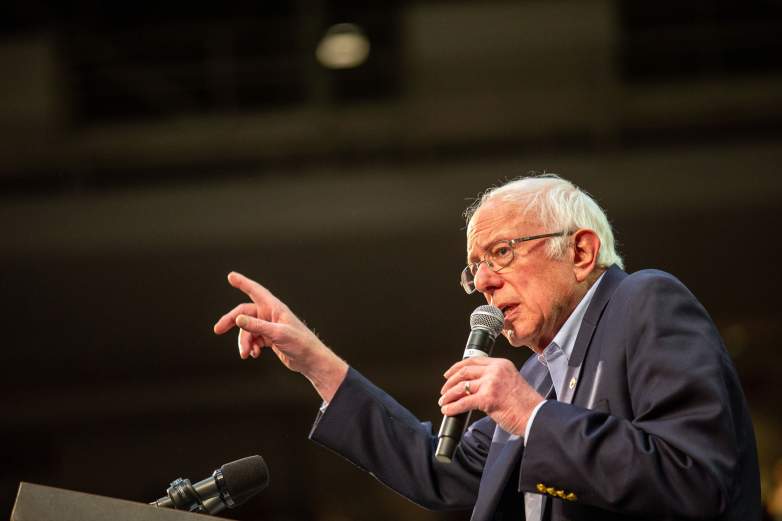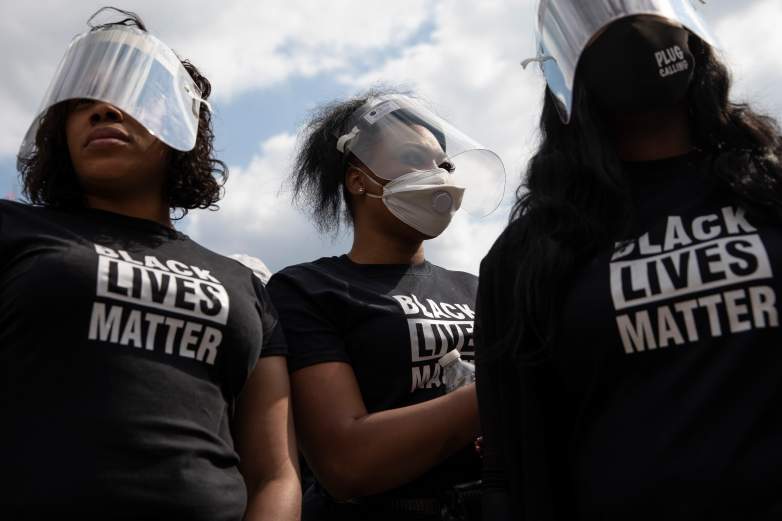
Lisa Bender is the Minneapolis City Council President who recently vowed to disband the city’s police department amid growing national unrest over police brutality rates.
Bender made the historic announcement on Sunday at a Black Visions Collective and Reclaim the Block rally at Powderhorn Park — just a few blocks from where George Floyd, an unarmed black man who died while in white police custody, was fatefully arrested.
The polarizing pledge comes in the wake of scores of anti-police brutality protests over Floyd’s death, which was captured on camera.
The harrowing footage shows former Minneapolis police officer Derek Chauvin pressing his knee into the back of Floyd’s neck for over eight minutes as the 46-year-old begged for air.
“It is clear that our system of policing is not keeping our communities safe,” the president said. “Our efforts at incremental reform have failed, period.”
Bender’s sentiments echo a mushrooming movement to “defund local police” by reinvesting in education, affordable housing and other social services.
The Minnesota native reiterated her commitment to ending the city’s relationship with the police force and “policing as we know it.”
Here’s what you need to know about Lisa Bender:
1. Bender Championed ‘Equitable and Sustainable Cities’ Even Before her Time in Office
Born in Shoreview, Minnesota, Bender’s resume includes a history of city planning for the City of San Francisco, the Minnesota Department of Health and the Minnesota Department of Transportation.
The mother of two has a bachelor’s degree in Spanish and Biology from the University of Minnesota, and master’s degree in City and Regional Planning from University of California, Berkeley.
In 2001, Bender worked as the Communications Director for the Institute for Transportation and Development Policy in New York City, in which she advocated for biking, walking and other non-motorized transportation across the globe.
Bender was sworn into the Minneapolis City Council in January 2014. She was also named chair of the city’s Zoning and Planning Committee — one of only two first-term council members to chair a standing committee of the council.
Bender reached another milestone in November 2017, when she won her re-election campaign and was unanimously elected as the new president.
2. Bender is a member of the Minnesota Democratic–Farmer–Labor Party

GettyFormer U.S. Vice President Walter Mondale accepts the nomination by Democrats to run for U.S. Senate October 30, 2002 in Minneapolis, Minnesota.
Formed by a merger of the Minnesota Democratic Party and the left-wing Minnesota Farmer–Labor Party in 1944, the DFL is one of only two state Democratic party affiliates of a different name.
Since DFL’s first governor Orville Freeman was elected in 1954, the party has secured majorities in the state House and Senate and been responsible for elected officials in the U.S. House and Senate, as well as Vice Presidents Hubert H. Humphrey and Walter Mondale.
The DFL believes “every Minnesotan” has the right to a “stable employment with fair wages, to a proper education, to raise and provide for a family, to accessible and affordable healthcare, to live in safe communities, and to retire with dignity and security.”
3. Bender was the Only Minneapolis Elected Official to Endorse Bernie Sanders During the 2016 Democratic Party Presidential Primaries

GettyDemocratic presidential hopeful Vermont Senator Bernie Sanders addresses a rally at The Saint Paul River Centre on March 2, 2020 in Saint Paul, Minnesota.
During the days leading up to Minnesota’s DFL Party Caucus in February 2016, Bender was a force of nature in bringing attention to the Vermont senator’s campaign.
“The time has passed for incrementalism and Band-Aids,” Bender conveyed to a crowd of Sanders’ supporters the day before Super Tuesday.
“Are you ready for a president of the United States who is willing to take on the status quo?” she continued. “That’s why we need all of you to get out and caucus for Bernie tomorrow.”
Bender took to the cameras again to speak on behalf of his campaign the following day.
The Sanders supporter expressed how the positive numbers proved that Minnesotans wanted “a working people’s champion” to tear down status quo politics.
“We are seeing across the state, not just in diverse urban neighborhoods, not just in communities of color, but with working people across our state,” she said. “(People) are listening to Bernie’s message.”
Bender later gave her support to former U.S. Secretary of State Hillary Clinton during the general election, but often circled back to Sanders’ core points.
4. Bender Recently Came Under Fire After Saying it is a ‘Privilege’ to Call 911

GettyProtesters with personal protective equipment (PPE) are gathering in Parliament Square to commemorate the life of George Floyd.
Bender gained national attention on Monday after a live interview with CNN’s New Day Co-Host Alisyn Camerota went viral.
While defending her stance on disbanding the police, Bender said Floyd’s death served as a “wake-up call.”
“For those of us for whom the system is working, I think we need to step back and imagine what it would feel like to already live in that reality where calling the police may mean more harm is done,” she said.
The council president explained to Camerota that not everyone is better off calling the police and that the expectation “comes from a place of a privilege.”
Many took to Twitter to share their thoughts on Bender’s response, which has amassed more than 1.7 million views, including U.S. Sen. Ted Cruz and Donald Trump Jr.
5. Bender Once Authored a Parking Reform Ordinance Featured in the Obama Administration’s 2016 Housing Development Toolkit
In 2015, Bender sponsored an ordinance aimed at relaxing parking requirements on new transit-oriented development throughout the city.
In an effort to mitigate rising housing costs, the ordinance did away with parking requirements for new developments with 50 or fewer units within a quarter mile of high-frequency transit. Minneapolis previously had a one parking space per unit requirement for all development outside of downtown.
The Obama Administration highlighted Bender’s parking reform ordinance as a model of success in its 2016 Housing Development Toolkit, which analyzes how state and local governments promote affordable and high-opportunity housing markets.
READ NEXT: Minneapolis Lawmakers Vow to Disband Police Department